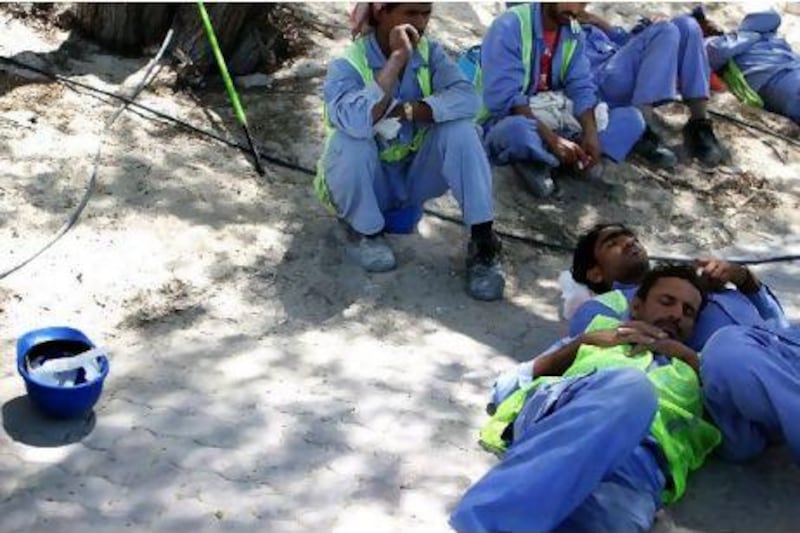ABU DHABI // An online system for collecting injury statistics will be launched in four hospitals in the coming months as a pilot study that officials hope will include the whole emirate by the year's end.
The scheme is being introduced by the Health Authority-Abu Dhabi (Haad) to measure the scale and frequency of injuries including heat exhaustion, construction site falls and traffic accidents.
Experts say the data will be invaluable for guiding health policy.
Once the surveillance programme is fully tested at the four hospitals, it will be introduced to all private and public hospitals in the emirate.
"We've been doing preliminary pretesting at a private hospital for the past few months," said Darren Joubert, a senior adviser for occupational health at Haad.
"They are coming back and telling us this or that doesn't work, and we are improving the system. The next stage is to run a pilot test with three more hospitals over a period of several months … to facilitate training and orientation."
Mr Joubert said there would be a full evaluation after that. He said there were plans to tie health insurance claims for workplace injuries to the system, in order to ensure compliance, once the process has been widely introduced.
"The long-term plan we are working toward is for hospitals to report workplace injuries in the system in order to be paid by the health insurer."
The programme has been under development for two years and has seen international co-operation involving experts at the John Hopkins Bloomberg School of Public Health in Baltimore, in the US.
A team from the university's international injury research unit is providing technical assistance with the pilot test. On Wednesday they held the first workshop in Abu Dhabi for the four participating hospitals, which Haad has not named.
"We will help Haad run the pilot for a few months in the hospitals and see how it is collecting data: what are some of the errors and what are some of the changes which might be made," said Professor Adnan Hyder, the director of the unit. "Then Haad can refine the system one final time and launch it across the emirate."
He said the value of the information collected would be "immense" in guiding health policy.
"As a researcher, I strongly believe in evidence for decision making," he said. "The better the data the better the decision making."
Mr Joubert said the idea for the system sprang from the authority's Safety in the Heat campaign, introduced in 2009 to reduce the number of summer heat-related fatalities among workers.
"We didn't have baseline data for the Safety in the Heat programme - how many heat-related cases are treated," he said. "That's something we needed to find out, so that's why we developed this system. It will help with that, but it will also record other injuries."
Injury surveillance systems such as this are common in the West. Dr Adnan's research in the past few years has been focused on helping to develop and test such systems in cities such as Cairo, Dhaka and Karachi.
He said Haad's system could serve as a model, not only for the UAE but for the broader region as well.
The surveillance system was initially scheduled to be implemented at the end of last year, but has been held until now while technical issues were addressed.
"We want to make sure that the system is the best that it can possibly be before we introduce it fully," Mr Joubert said. "We hope that it's going to be in place for the next 50 years or longer and be an important tool in planning for the prevention of injuries."






